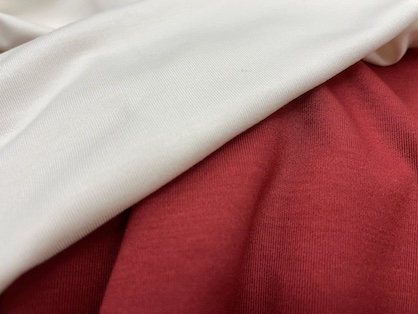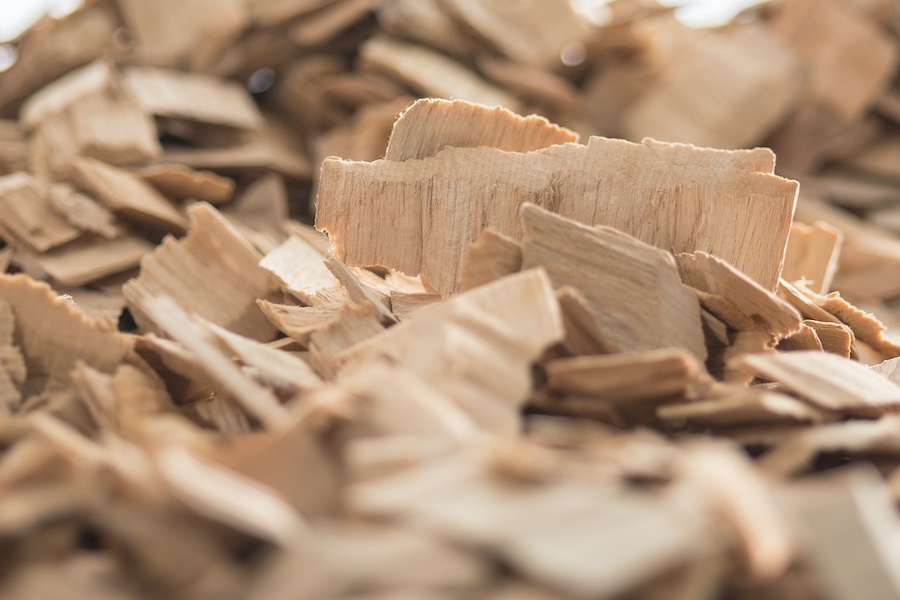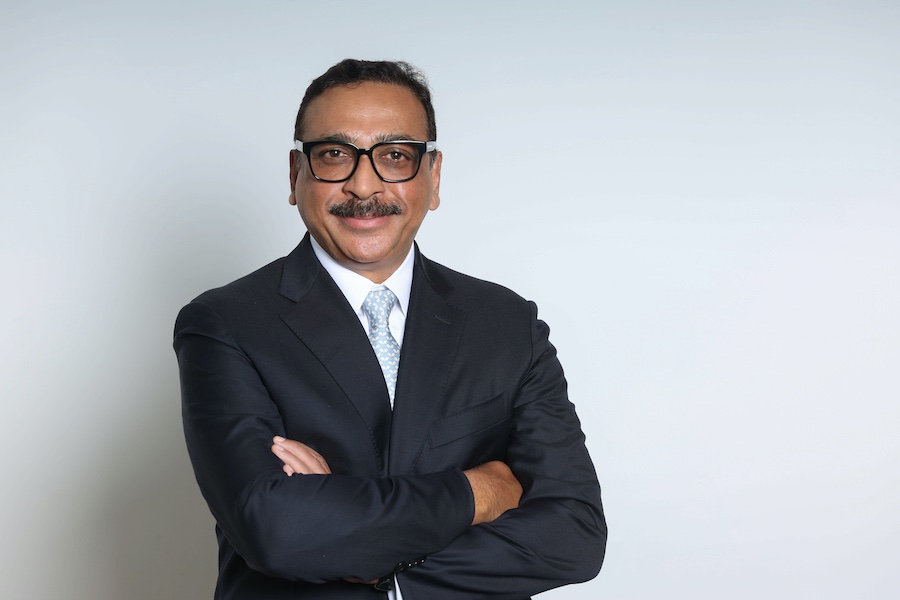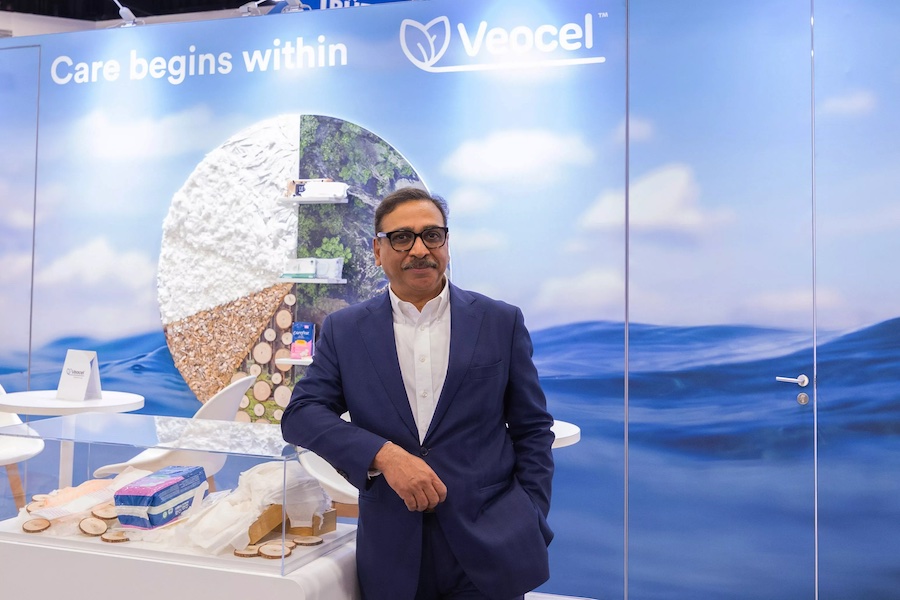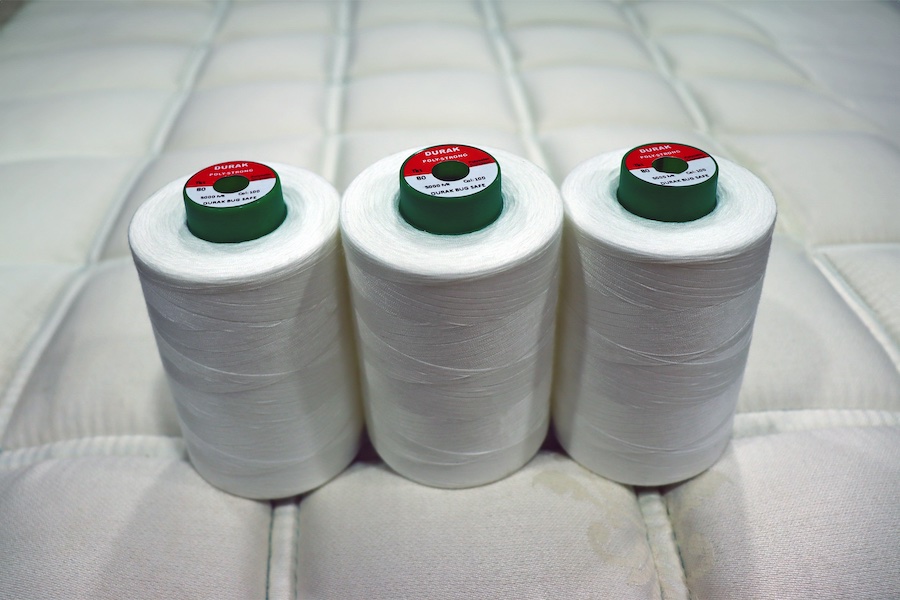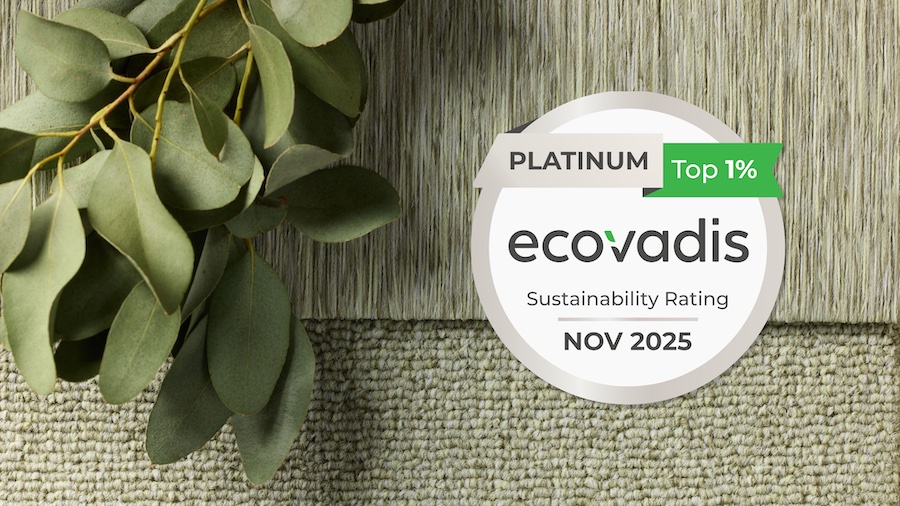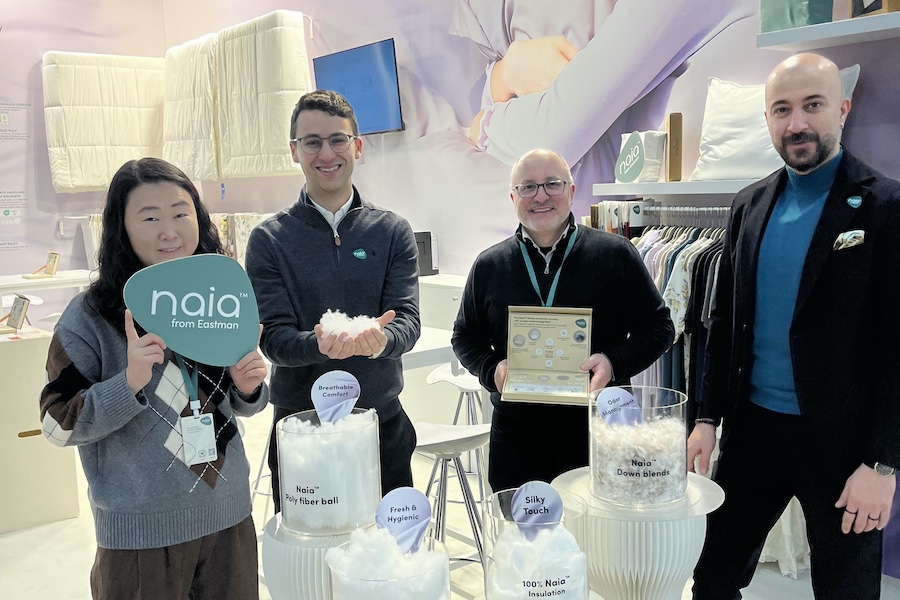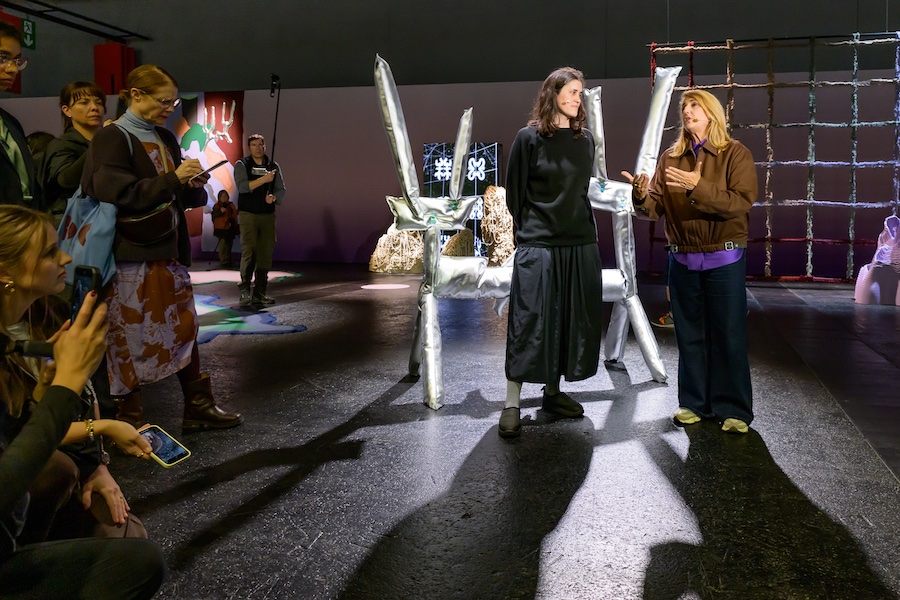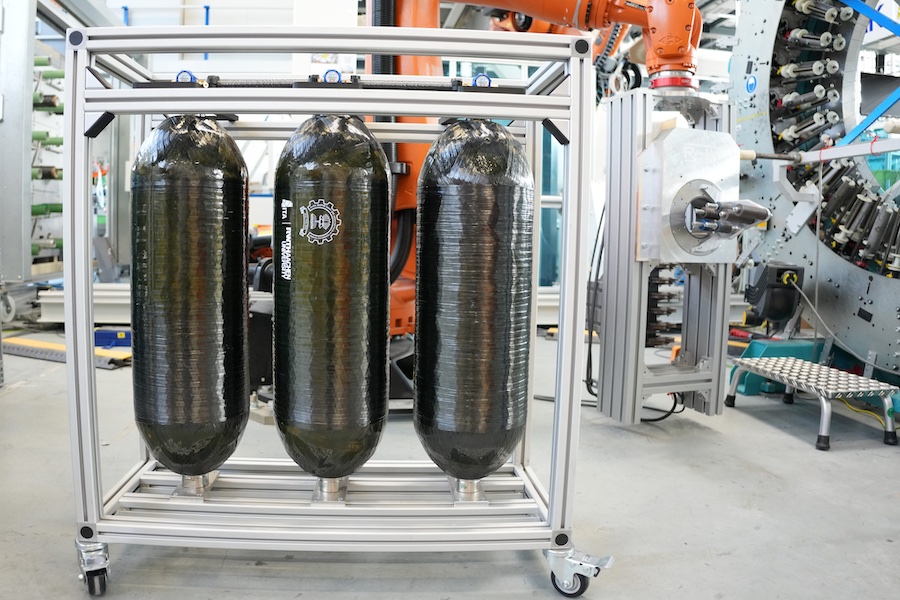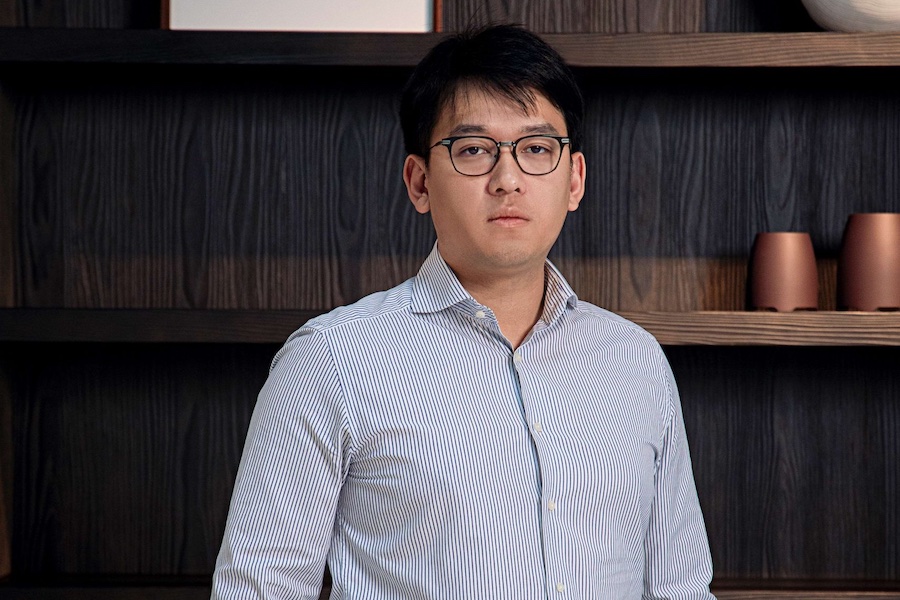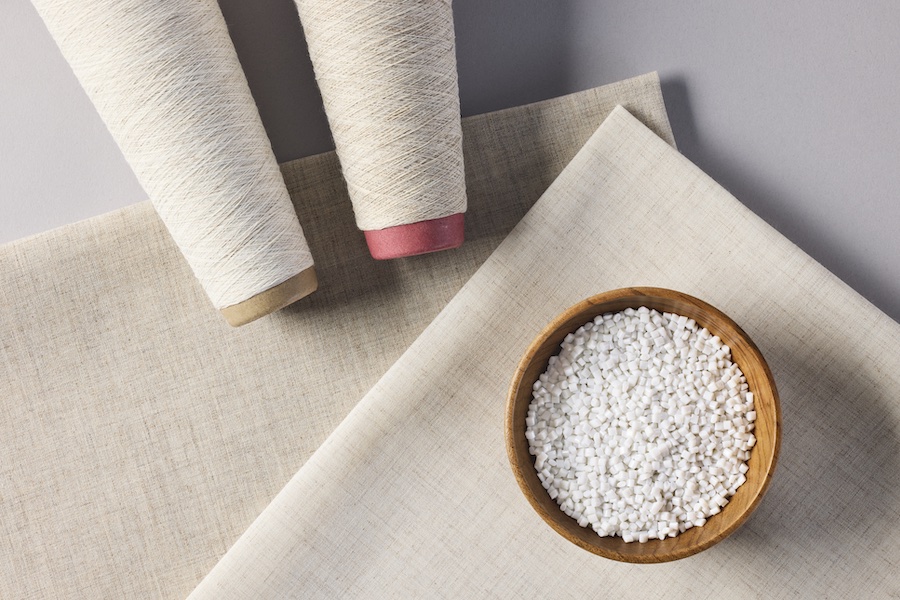#Yarn & Fiber
ROICA™ by Asahi Kasei and TENCEL™ by Lenzing AG join forces in journey towards circular economy
ROICA™ and TENCEL™ together after extensive years of R&D, are able to offer contemporary, responsible, quality, and performing fibers for a new generation of design, used across the collections of both partners; either fabric manufacturers or brands. ROICA™ continues to redefine the standards of contemporary fashion, intertwining elegance with responsible consciousness towards a future where fashion and sustainability coexist in harmony, with a focus on more sustainable stretch yarns that match the customer’s desires and needs. Clothes and fabrics made with ROICA™ V550 inside keep their shape and colour whilst also being highly eco-responsible. Lenzing AG, with its flagship brand for textiles; TENCEL™ Lyocell and TENCEL™ Modal, found in the collections of many leading designers and renowned brands and retailers, is able to offer fibers made from controlled or certified sourced natural raw material wood, refined to maximize resource efficiency and minimize environmental impact.
The journey towards Circular Economy needed a further step and a vision shared by both partners as a core reason for the joint collaboration: to move quicker and to do better, ensuring an improved end of life to fabrics and garments. Indeed, what the two companies and their developments in the field of fibers have in common is not only the unique touch, comfort and performance, but the responsible environmental impact when it comes to the end of life of a material.
ROICA™ V550 is the world-first sustainable degradable yarn by Asahi Kasei. It partially degrades under ISO 14855-1 tested by OWS, decomposing into CO2 and water, and is also a world-first, Cradle to Cradle-Certified™ stretch (elastane) yarn with a Material Health Gold Level Certificate;
TENCEL™ fibers are made of wood from controlled or certified wood sources. This natural origin has an impact on the environmental footprint of production, but it also has implications for the fibers’ end of life. TENCEL™ Lyocell and TENCEL™ Modal are biodegradable in marine water, fresh water and soil.
This partnership sets new benchmarks for sustainability, performance and design in textiles, aligning with global demands for environmentally responsible manufacturing, marking a significant advancement in textile technology and demonstrates the companies’ shared commitment to the circular economy bringing an innovative textile concept designed for the future. The collaboration between ROICA™ and TENCEL™ is a testament to the power of partnership in driving innovation and sustainability in the textile industry. It showcases a shared commitment to reducing environmental impact, enhancing fabric performance, and leading the way towards a more sustainable and circular future.
Mr. Shinohe Hiroaki, Chief Marketing Officer of ROICA Europe at Asahi Kasei, highlighted the importance of this collaboration: “By joining forces with Lenzing AG and integrating TENCEL™ fibers with our ROICA™ V550, we are not just creating textiles; we are crafting an additional choice for the future of sustainable fashion. Our combined efforts will lead to the development of fabrics that not only excel in performance and aesthetics but also significantly contribute to a more sustainable planet.”
Mr. Carlo Covini, Business Development Italy & Switzerland at Lenzing Italy, added: “This partnership embodies our shared vision of a more sustainable textile industry. TENCEL™’s fibers recycling potential, combined with ROICA™’s innovative stretch degradable technology, will set a new standard for responsible textiles, offering brands and consumers alike a more close to circular approach solution.”
In order to effectively implement the project, a roadshow series of leading fabric producers will offer to the market ready made solutions for each wardrobe application.
During Performance Days, Brugnoli is introducing YOGATIME a line made by three new articles featuring these 2 very special yarns that can be clear and fact supported about their end of life. These innovative fabrics combine TENCEL™ Modal and the premium degradable stretch ROICA ™V550.
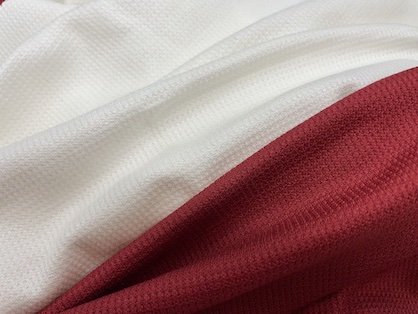
TENCEL™ Modal with Micro technology is made of wood from controlled or certified wood sources. This natural origin has an impact on the environmental footprint of production, but it also has implications for the fibers’ end of life. TENCEL™ Modal x Micro fibers can break down and compost at the end of their life cycle. The structure of TENCEL™ Modal fibers allows the absorption and release of moisture. In the final textile product, these effective moisture controlling properties support a drier microclimate on the skin, increasing the wearer’s thermal comfort.
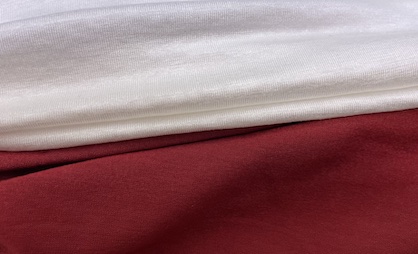
ROICA™ V550 is the world-first sustainable degradable yarn by Asahi Kasei. It partially degrades under ISO 14855-1 tested by OWS, decomposing into CO2 and water, and is also a world-first, Cradle to Cradle-Certified™ stretch (elastane) yarn with a Material Health Gold Level Certificate. ROICA™ V550 offers an enhanced degradability whose value stands out from the conventional elastane that does not even degrade.
Brugnoli's YogaTime Collection includes 3 new articles made with these two yarns matching the needs of each garment designed for YogaWear with a conscious approach:
+ BDG1: for soft T-shirts with a silky hand feel and shiny appearance
+ BDG2: fabrics for elastic and soft leggings and pants
+ BDG3: for comfortable tank tops and OverTops for relaxation moments.
All items are Oeko-Tex Standard 100 certified, produced in Italy at Brugnoli's facilities.
Discover them at Stand Brugnoli - N12 - Performance Days - Munich.
